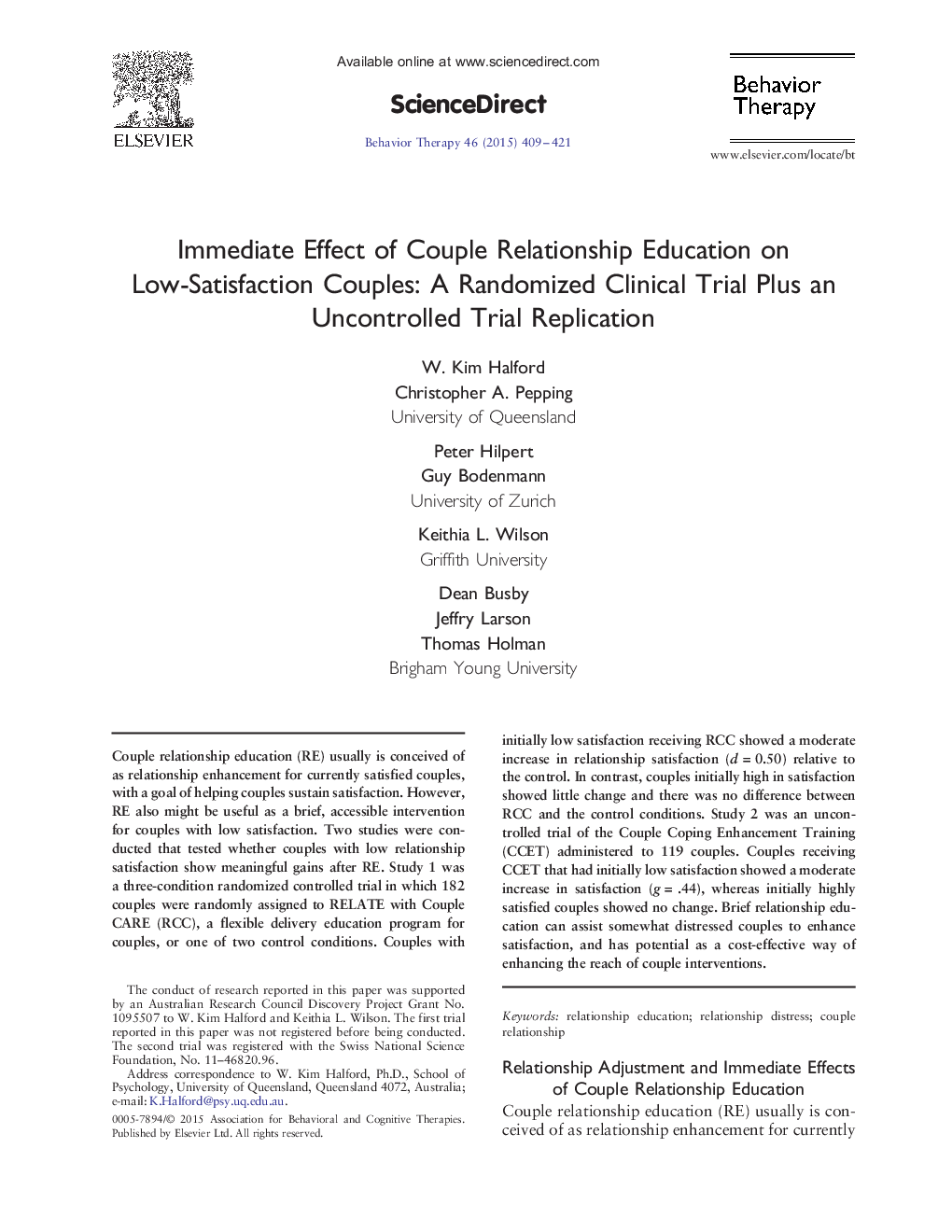| Article ID | Journal | Published Year | Pages | File Type |
|---|---|---|---|---|
| 901262 | Behavior Therapy | 2015 | 13 Pages |
•Brief couple relationship education (RE) is accessed frequently by couples.•RE increases satisfaction in couples with low relationship satisfaction.•RE can be effective when delivered in a self-directed form couples complete at home.•RE can be effective when delivered in an intensive weekend format.
Couple relationship education (RE) usually is conceived of as relationship enhancement for currently satisfied couples, with a goal of helping couples sustain satisfaction. However, RE also might be useful as a brief, accessible intervention for couples with low satisfaction. Two studies were conducted that tested whether couples with low relationship satisfaction show meaningful gains after RE. Study 1 was a three-condition randomized controlled trial in which 182 couples were randomly assigned to RELATE with Couple CARE (RCC), a flexible delivery education program for couples, or one of two control conditions. Couples with initially low satisfaction receiving RCC showed a moderate increase in relationship satisfaction (d = 0.50) relative to the control. In contrast, couples initially high in satisfaction showed little change and there was no difference between RCC and the control conditions. Study 2 was an uncontrolled trial of the Couple Coping Enhancement Training (CCET) administered to 119 couples. Couples receiving CCET that had initially low satisfaction showed a moderate increase in satisfaction (g = .44), whereas initially highly satisfied couples showed no change. Brief relationship education can assist somewhat distressed couples to enhance satisfaction, and has potential as a cost-effective way of enhancing the reach of couple interventions.
